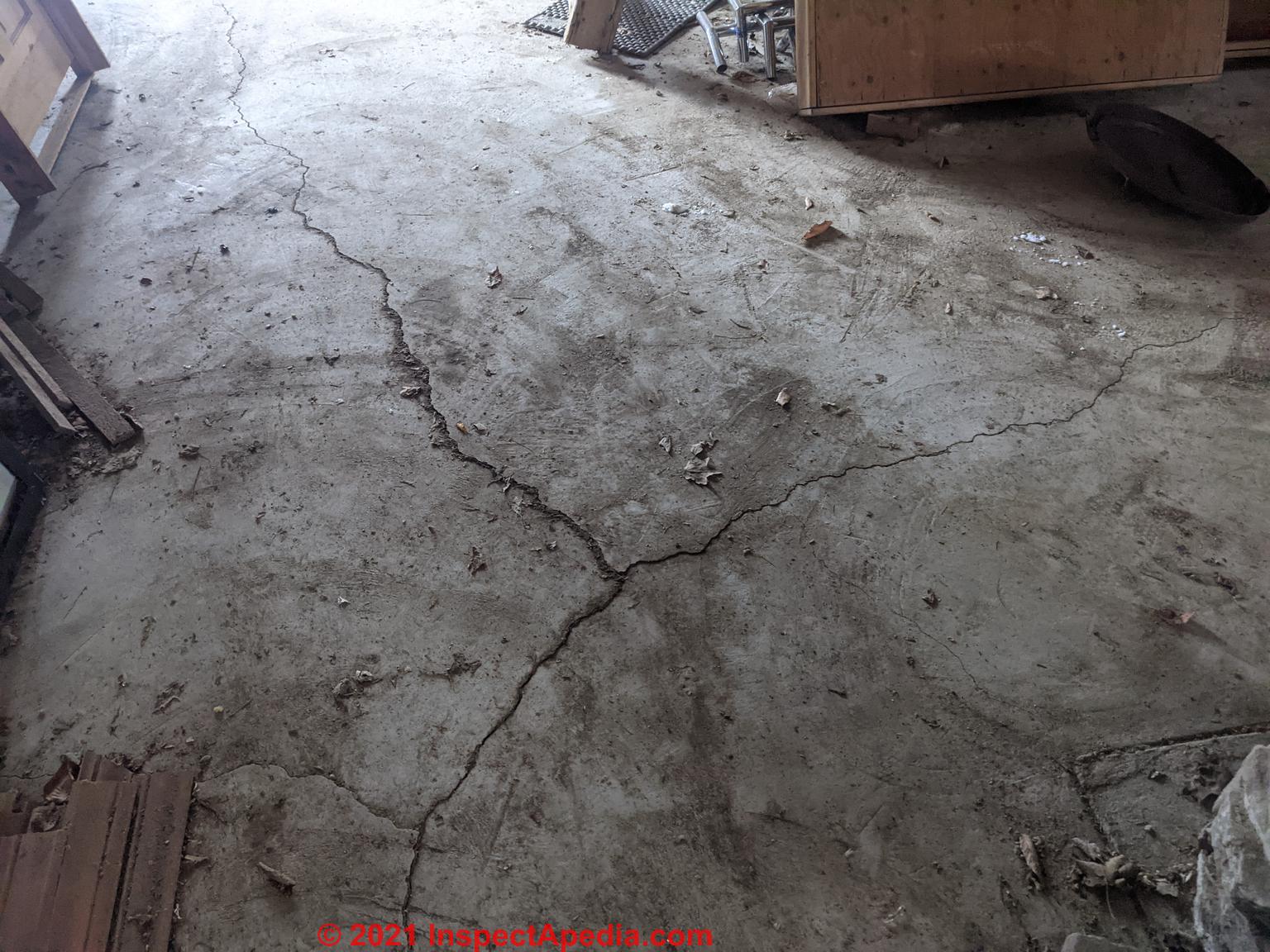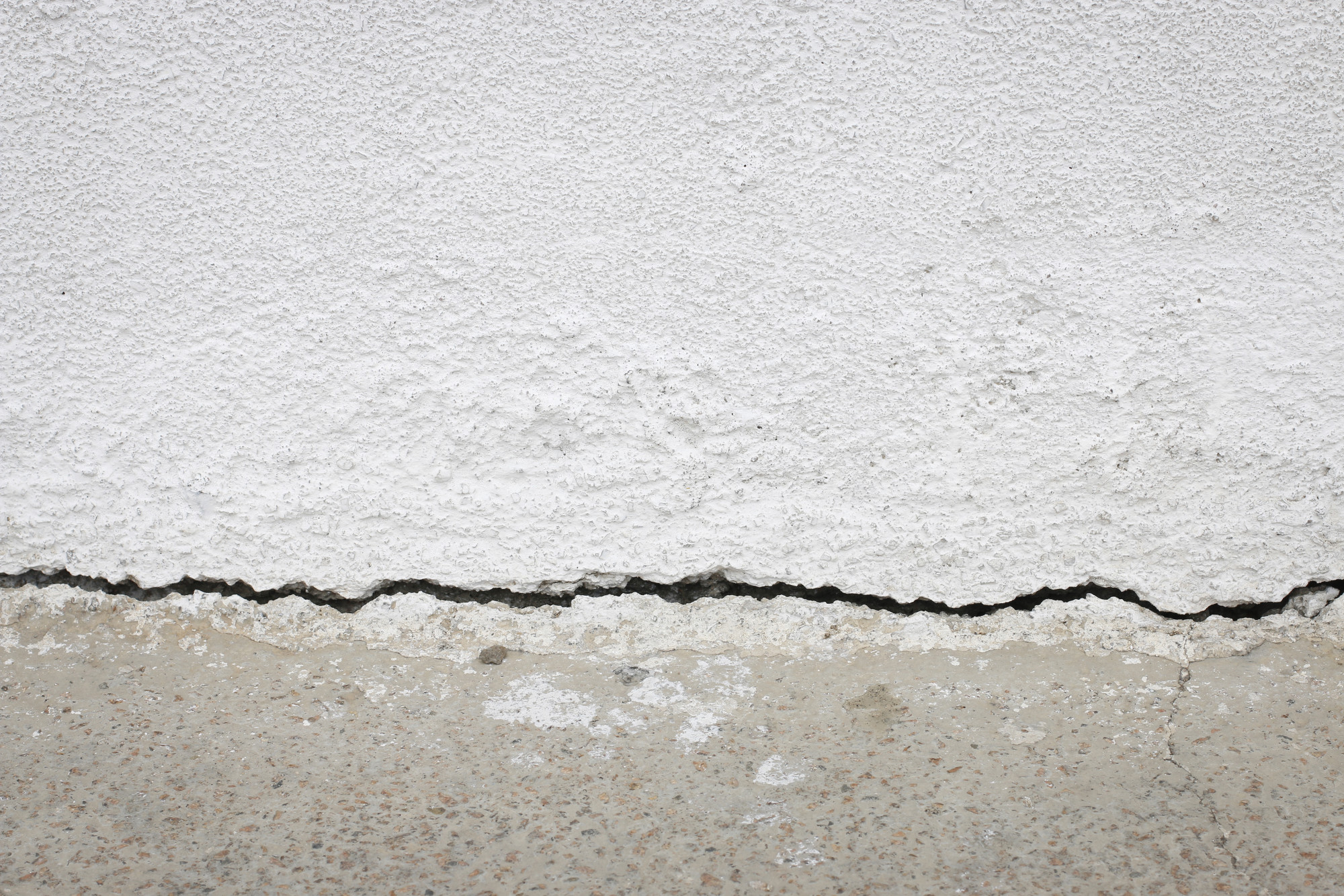Moving into a brand new home is supposed to be a joyful experience. However, that joy can quickly turn to worry when you discover cracks in the basement floor. It’s an unsettling sight, especially in a new house, and it’s natural to wonder if it’s a serious problem. I remember the sinking feeling in my stomach when I saw those hairline cracks in my basement just a few months after we moved in. They weren’t huge, but they were enough to spark a wave of anxiety. Thankfully, after doing some research and consulting with a professional, I learned that not all cracks are created equal. Some are harmless, while others can signal underlying problems. This article delves into the world of basement floor cracks, helping you determine when to be concerned and when to rest assured.

Image: dragon-upd.com
Understanding Cracks in Basement Floors
Cracks in basement floors are a common occurrence, especially in new homes. This is because the foundation, the very base of your house, is constantly adjusting to shifts in the soil and variations in moisture levels. As the soil expands and contracts, it can put stress on the foundation, leading to cracks in the concrete floor. While this might seem alarming, it’s crucial to remember that not all cracks spell disaster. Some are merely cosmetic and pose no threat to the structural integrity of your home, while others can signal more serious issues that need prompt attention.
The most important factor in determining the severity of a crack is its nature. Hairline cracks, typically less than 1/8 inch wide, are often harmless and simply reflect the natural movement of your foundation. However, wider, jagged cracks, or those accompanied by other signs like bowing walls, excessive moisture, or significant settling, should be treated as potential warning signs that require immediate professional evaluation.
Types of Cracks and Their Significance
To better understand the severity of your basement floor cracks, we need to delve into the different types and their typical causes:
- Hairline Cracks: These are the most common and often benign. They are thin, less than 1/8 inch wide, and often spread throughout the floor. They usually occur due to normal foundation settling or changes in humidity.
- Cracks with Step-like Formations: These cracks indicate uneven settling, where one section of the floor is sinking more than another. They often suggest a problem with the foundation footing or soil conditions.
- Cracks That Are Widening: These are concerning. If cracks are progressively growing wider or deeper, it could indicate a serious foundation issue that needs immediate attention from a qualified professional.
- Cracks accompanied by other symptoms: If you notice cracks alongside bowing walls, excessive moisture, or significant settling, it’s crucial to contact a structural engineer for inspection and guidance.
Remember, just because a crack is wide doesn’t automatically mean it’s a serious problem. Cracks can occur due to various factors, and a qualified professional can accurately assess the situation and provide the appropriate solution.
Causes of Cracks in Basement Floors
Understanding the root causes of basement floor cracks is key to addressing them effectively. Here’s a breakdown of common culprits:
- Foundation Settling: As a new home settles into the soil, minor shifts and movements can cause cracks to appear in the foundation and floor. This is a natural process that usually stabilizes over time.
- Soil Expansion and Contraction: Changes in moisture content can cause the soil surrounding your foundation to expand and contract, putting pressure on the foundation walls and floor.
- Tree Roots: Growing tree roots can exert significant pressure on the foundation, leading to cracking.
- Poor Soil Conditions: If the soil under your foundation is unstable or expansive, it can lead to excessive movement and cracking.
- Heavy Loads: Adding heavy weight to your basement, like new fixtures or appliances, can put additional stress on the floor.
- Freeze-Thaw Cycles: In colder climates, repeated freezing and thawing of soil can put stress on the foundation, leading to cracking, especially if the foundation is not properly insulated.

Image: armoredbasement.com
When to Worry About Basement Floor Cracks
Not all cracks in a basement floor call for immediate panic. However, certain signs should prompt a call to a structural engineer or a qualified contractor for professional inspection and advice:
- Large cracks: If the crack is wider than 1/8 inch, particularly if it is jagged or irregular, it could indicate a more serious problem.
- Cracks that are widening: If you notice the cracks growing larger or deeper over time, it suggests ongoing movement in the foundation.
- Cracks that are accompanied by bowing walls: This combination is a strong indicator of foundation instability, needing immediate attention.
- Cracks that are accompanied by excessive moisture: Water seeping into the basement through cracks could point to a waterproofing issue and damage to the foundation.
- Cracks that are accompanied by significant settling: Noticeable sinking or unevenness in the floor could indicate foundation instability, requiring professional assessment.
Tips and Advice for Dealing with Basement Floor Cracks
Knowing how to address basement floor cracks can help you make informed decisions about your home. Here are some tips and expert advice:
- Monitor the Cracks: Keep a close eye on the size and location of any cracks. Mark them with tape or paint so you can track their progress.
- Consult a Professional: If you notice concerning cracks, don’t hesitate to contact a qualified structural engineer or contractor. This allows for a professional assessment and personalized advice regarding your situation.
- Address Moisture Issues: If you have a wet basement, it can exacerbate cracks and put further stress on the foundation. Proper drainage and waterproofing are crucial.
- Minimize Heavy Loads: Avoid placing excessive weight on the basement floor. This can help prevent further stress.
- Consider Foundation Repair: If the cracks indicate a serious foundation issue, foundation repair might be necessary. A qualified professional can advise on the best course of action.
- Maintain Your Home’s Exterior: A well-maintained home, with gutters and downspouts in good working order, can help prevent excess water from pooling near the foundation and contributing to soil expansion.
These tips can help you manage the situation and make sound decisions for your home. When unsure, consulting a professional is always the best practice. They have the expertise to accurately assess concerns and recommend the most effective solutions for your specific situation.
Cracks in Basement Floor FAQs
Here are some frequently asked questions about cracks in basement floors:
Q: What are the common solutions for fixing cracks in a basement floor?
A: Solutions depend on the cause and severity of the cracks. They can range from simple cosmetic repairs, like filling the cracks with epoxy, to more involved methods like foundation underpinning or stabilization. A qualified professional will recommend the appropriate solution based on their assessment.
Q: How much does it cost to fix cracks in a basement floor?
A: The cost can vary greatly, depending on the severity of the cracks, the size of your basement, and the complexity of the repair solution. Minor cosmetic repairs can cost a few hundred dollars, while extensive foundation work might cost several thousand dollars. It’s wise to obtain quotes from several reputable contractors.
Q: Can I ignore cracks in my basement floor?
A: While ignoring small, harmless cracks might be okay temporarily, it’s not recommended for larger or widening cracks. These can signal a more serious foundation issue that could worsen over time and affect the structural integrity of your home. It’s prudent to address any concerning cracks promptly.
Q: What is the best way to prevent cracks in a basement floor?
A: While preventing cracks entirely is difficult, you can take preventive measures like maintaining proper drainage and waterproofing, minimizing heavy loads, and being mindful of tree roots near your foundation. Properly insulating the foundation in colder climates can also help.
Cracks In Basement Floor Of New House
Conclusion
Cracks in a basement floor can be a real source of anxiety, especially in a new home. However, by understanding the different types of cracks and their potential causes, you can approach the situation with greater clarity. Remember, not all cracks are serious. By monitoring their progress and seeking expert advice when necessary, you can ensure that your basement floor remains sound and your home remains safe.
Are you concerned about cracks in your basement floor? Share your questions or experiences in the comments below!






